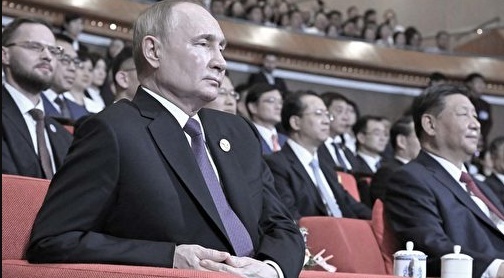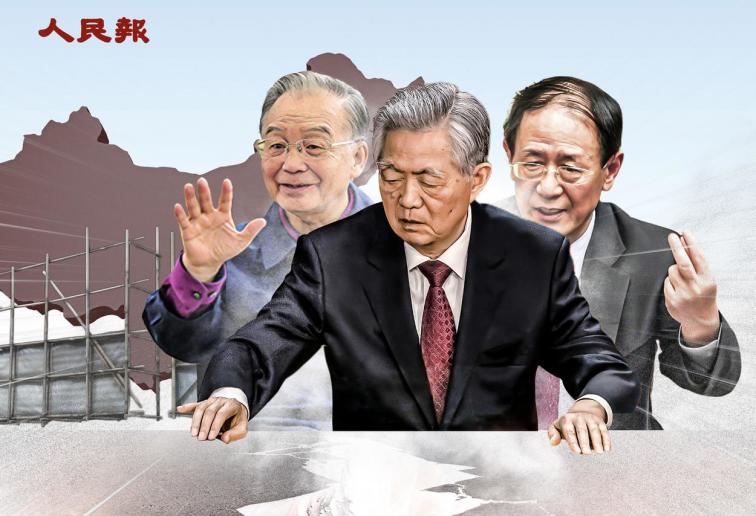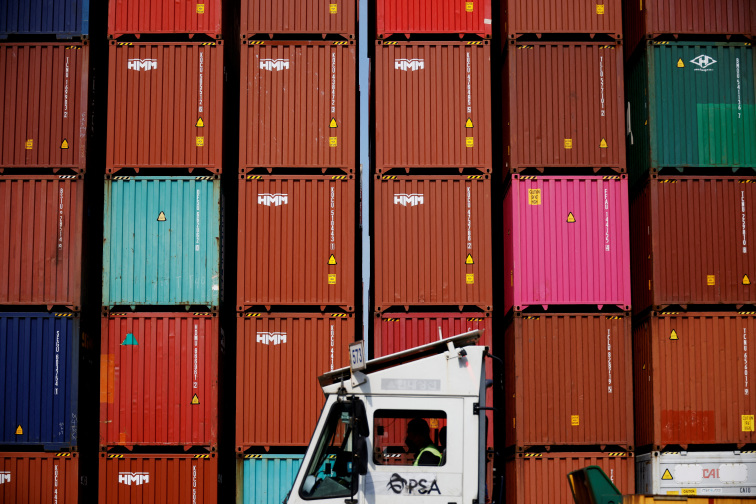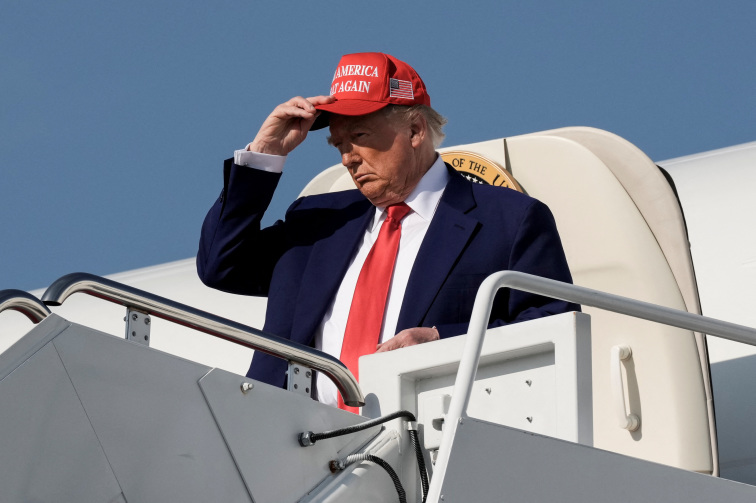On the afternoon of May 16, 2024, Putin (front left) attended a concert in Beijing commemorating the 75th anniversary of China-Russia (Soviet) diplomatic relations. His gaze was unfocused on the performance, appearing deep in thought. Putin's body also leaned slightly away from Xi Jinping (front right, second from the right).
[People News] According to a report by TASS on June 22, Yuri Ushakov, an assistant to the President of Russia, announced in an interview that President Putin will visit Beijing for four days from August 31 to September 3.
Putin is referred to as a good friend by Xi Jinping. Typically, when there are political or regime changes in Beijing, Russia is informed through intelligence channels, whether openly or discreetly. Amid current rumours about Xi Jinping potentially being relieved of power or about to hand over authority, it is unusual for Putin to spend four days in Beijing. Does this indicate that Xi Jinping's power is stable, or is Putin there to support him? Alternatively, is this a diplomatic engagement with the new regime that may follow Xi Jinping's transition of power?
Reports from state media, including Xinhua, indicate that the 37th chairperson meeting of the 14th National Committee of the Chinese People's Political Consultative Conference (CPPCC) took place on the 20th, where it was decided to hold the 13th Standing Committee meeting of the 14th CPPCC in late August. Commentator Li Mu Yang suggests that this meeting is essentially aimed at preparing unified ideological groundwork for personnel arrangements ahead of the Fourth Plenary Session of the 14th Central Committee of the Communist Party of China. Historically, personnel changes at the senior level of the CPPCC are determined during Standing Committee meetings, and such changes are ultimately influenced by personnel shifts at the upper echelons of Zhongnanhai. Therefore, it seems likely that the Fourth Plenary Session will occur during this timeframe, focusing primarily on personnel changes within the Communist Party and government. Consequently, if Xi Jinping is indeed planning to hand over power to Ding Xuexiang or Hu Chunhua, we can expect some actions to be taken during this meeting.
Thus, when Putin arrives in Beijing at the end of August, who which the General Secretary of the Communist Party will he meet?
According to a report by TASS, during his visit, Putin is scheduled to meet with the leadership of the Chinese Communist Party (CCP) at the Shanghai Cooperation Organisation summit taking place from August 31 to September 1, and will attend significant bilateral talks with the CCP on September 2. Additionally, on September 3, both the CCP leader and Putin will participate in events commemorating the so-called '80th anniversary of the victory in the War of Resistance and the World Anti-Fascist War.'
The CCP has claimed the achievements of the Republic of China’s War of Resistance to conduct military parades, which have been led by Xi Jinping in recent years. This year, it is anticipated that the CCP has already coordinated a specific agenda with Putin.
Notably, on June 20, Ding Xuexiang, Vice Premier of the State Council of the CCP, met with Russian President Putin during the International Economic Forum in St. Petersburg.
U.S.-based political commentator Chen Pokong highlighted that the format of their meeting involved face-to-face seating, indicating an equal status and discussions, contrasting with previous meetings where other members of the CCP Standing Committee or vice-national-level officials sat across from each other. This carries significant symbolic weight, suggesting that Ding may be signalling a future equal standing with Putin as General Secretary.
During his meeting with Putin, Ding Xuexiang remarked, 'The direction set by President Xi Jinping and President Putin is the greatest guarantee for deepening Sino-Russian cooperation and continuing generational friendship.' Chen Pokong analysed that the term 'generational friendship' is not used casually and carries specific connotations. 'Ding Xuexiang is clearly indicating that he is Xi Jinping's successor; generational friendship signifies that in this generation, Xi Jinping and Ding Xuexiang's generation, it conveys the idea of inheritance.'
Analysts observe that Ding Xuexiang's lack of experience makes him susceptible to being governed behind the scenes by Xi Jinping. The Fourth Plenary Session may reveal information about Ding's succession, but as long as Xi remains in power, it is anticipated that the formal transfer of authority will take place at the 21st National Congress. In this light, when Putin attends the military parade in Beijing in early September, the host will likely be either Ding Xuexiang or Xi Jinping.
The regime of the Chinese Communist Party operates as an extremely secretive black box, particularly when it comes to significant personnel changes that could impact its power, which are typically avoided in advance. Nevertheless, if this system persists, the departure of Xi and the arrival of a Ding or Hu, even with a change of name, would amount to merely a change of soup without altering the medicine; the suffering of the populace would continue unabated. △
(Originally published by People News)











News magazine bootstrap themes!
I like this themes, fast loading and look profesional
Thank you Carlos!
You're welcome!
Please support me with give positive rating!
Yes Sure!